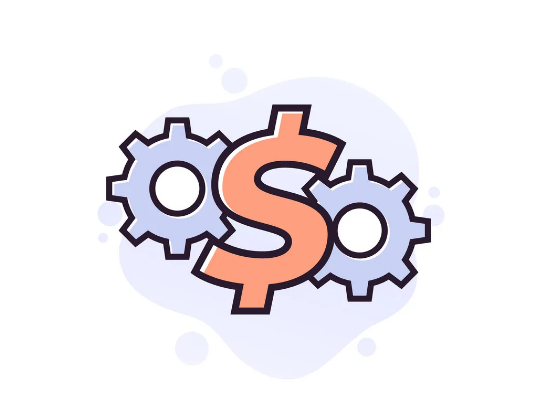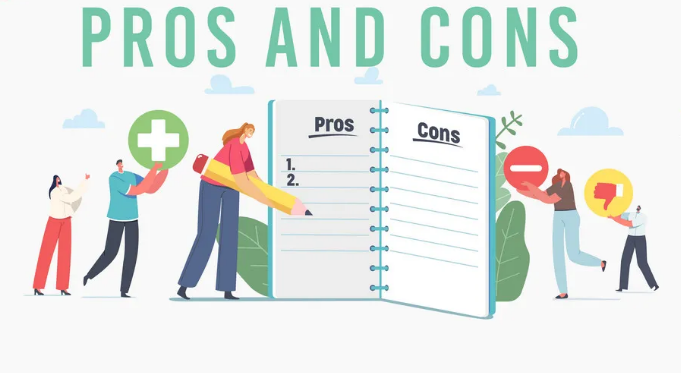What is a Professional Employer Organization?
A professional employer organization, or PEO, is a company that provides a range of human resource services to small and medium-sized businesses.
PEOs are often used by businesses that do not have the internal resources to support a full-time human resources department.
They can provide a wide range of services, including payroll and benefits administration, risk management, employee training and development, and compliance with employment laws.
They typically enter into a co-employment relationship with their clients, meaning that they assume responsibility for certain aspects of the employment relationship between the business and its employees.
There are many different types of PEOs in operation today, each offering different services and programs.
It is important to understand the different options available and select the organization that best meets the needs of your business.
PEOs typically offer a comprehensive suite of HR services, including employee benefits, workers’ compensation, payroll processing, and compliance with state and federal employment laws.
Some PEOs also offer additional services such as training and development, recruiting, and safety and risk management.
PEOs can be an attractive option for small businesses that do not have the time or resources to manage HR themselves. By outsourcing HR to a PEO, businesses can save money on costs like benefits administration and compliance with employment laws.
In addition, PEOs have access to economies of scale that allow them to offer competitive benefits packages to their client’s employees.

What Services does Professional Employer Organization Provide?
A Professional Employer Organization (PEO) is a company that provides a range of human resource and employee benefits services to small and medium-sized businesses.
PEOs typically offer their clients access to a wider range of benefits and HR services than they could afford to provide on their own.
These services can include payroll, employee benefits, workers’ compensation, risk management, and compliance with employment-related laws and regulations.
A PEO can take on the responsibilities of payroll, benefits administration, workers’ compensation, and even recruiting and hiring for its clients
PEOs usually enter into co-employment relationships with their clients.
In a co-employment relationship, the PEO becomes the employer of record for tax and benefits purposes, while the client retains day-to-day control over its employees.
PEOs can provide significant cost savings for businesses, as they often have economies of scale that allow them to get better rates on payroll processing, benefits, and insurance.
This arrangement can give small businesses greater buying power when it comes to negotiating health insurance and other employee benefits.
If you are considering using a PEO, it is important to choose a reputable and experienced provider.
sure to check references and review the terms of the contract carefully before entering into an agreement.

How do Professional Employer Organizations work?
PEOs are an increasingly popular solution for businesses looking to improve their HR function. If you are considering using a PEO for your business, it is important to do your research and choose a reputable provider.
PEOs also provide their clients with access to a larger pool of potential employees than they would otherwise have, as well as a greater array of employee benefits options.
Because PEOs are experts in HR management, they can often help their clients resolve employee issues before they escalate into bigger problems.
PEOs are experts in human resources management, and they use their knowledge and experience to help businesses comply with employment laws and regulations.
They also work with businesses to develop strategies for attracting and retaining top talent.
addition, PEOs provide access to group health insurance plans and other employee benefits that small businesses might not be able to offer on their own.
PEOs typically charge a fee for their services, which is based on the number of employees in the client company. The fee may be billed monthly or annually.
PEOs also offer bundled packages that include additional services such as workers’ compensation insurance or retirement plan administration.
When choosing a PEO, it is important to consider the services offered, the size and experience of the organization, and the costs involved.

Types of Professional Employer Organizations
When it comes to professional employer organizations (PEOs), there are a variety of different types that businesses can choose from.
Here is a breakdown of the most common types of PEOs:
1 Co-Employment Arrangements/Gated Community:
In this type of arrangement, the PEO and the client company are considered co-employers. This means that the PEO handles all HR and payroll functions for the company’s employees.
2 Single Employer Arrangements:
In this type of arrangement, the PEO is considered the sole employer of the client company’s employees. The PEO handles all HR and payroll functions for these employees.
3 Administrative Services Only (ASO) Arrangements:
In this type of arrangement, the PEO provides administrative services to the client company, but the company remains the employer of its own employees.
The PEO may handle HR and payroll functions for the company’s employees, or just provide administrative support.
4 Master Service Providers (MSP):
In this type of arrangement, the PEO functions as an MSP, providing a full range of HR services to its clients.
PEO may also provide other services such as IT support, accounting, and marketing.
The type of professional employer organization that a business chooses should be based on its specific needs and objectives.
5 Staff Leasing:
A Staff leasing PEO provides trained and vetted workers to their clients on a long-term basis.
PEO becomes the employer of record, taking on all HR-related responsibilities, including payroll, benefits, unemployment claims, and workers’ compensation claims.
6 Cooperative PEOs
These are membership-based organizations that give their members access to HR services, like those offered by Administrative PEOs. These services are usually provided through a network of participating employers.
Cooperative PEOs are membership-based, they typically have a larger pool of clients than Administrative PEOs.
7 Insurance Services Only (ISO)
ISOs are similar to ASOs, but they also assume employment risks such as workers’ compensation insurance. ISOs do not provide health insurance or any other type of employee benefits.
Do read the differences between Professional Employer Organization and Employer Of Record here.

How can a Professional Employer Organizations Help You?
There are many reasons why you might consider working with a PEO. Perhaps you don’t have the time or resources to handle all of your HR needs internally. Or maybe you’re looking for ways to reduce costs and improve benefits offerings.
Whatever your reason, a PEO can help you manage your workforce more effectively so you can focus on running your business.
Here are some of the ways a PEO can help you:
1. Comprehensive HR Outsourcing
When you work with a PEO, you outsource all of your HR functions to them. This includes tasks like payroll, benefits administration, compliance with employment laws, and employee training.
This frees up your time so you can focus on other aspects of your business.
2. Cost Savings
A PEO can help you save money on your HR costs in several ways. They may be able to negotiate better rates for health insurance and other employee benefits. They can also help you reduce turnover by improving your hiring processes and offering employees more competitive benefits packages
3. Improved Benefits Packages
A PEO can help you design and implement better employee benefit programs. For example, they may offer group health insurance plans that are more affordable than
4 HR compliance
A PEO can help you stay compliant with all applicable employment laws. This includes things like unemployment insurance, workers’ compensation, and anti-discrimination laws.
5 Employee recruitment and development
A PEO can assist you with recruiting top talent. They can also help you develop your existing employees through training and development programs.
This arrangement provides small businesses with access to HR resources and expertise that they might not otherwise be able to afford.
It allows businesses to pool together their employees with other small businesses in the PEO, which can lead to cost savings on things like health insurance and workers’ compensation
A professional employer organization (PEO) can help your small business with a variety of human resources needs, from payroll and benefits to compliance with employment laws. But,

How much does a PEO cost?
The answer depends on the size of your business and the services you need.
Most professional employer organizations will charge a percentage of your total payroll costs. This can range from 2-7% of your total payroll costs, depending on the size and complexity of your organization.
PEOs typically charge a flat fee or a percentage of your company’s payroll.
Average charges a monthly fee per employee, which can range from $200 to $1,000 per month for businesses with 10 to 49 employees or more depending on the services provided and the size of the company, and $2,500 to $5,000 per month for businesses with 50 or more employees.
Some PEOs also charge an initial setup fee.

How to Find the right Professional Employer Organization for You?
There are a few key things you should look for when finding the right Professional Employer Organization (PEO) for your business:
1 Define your needs
Before you start looking for a PEO, it’s important to identify what your company’s HR needs are. This will help you narrow down your options and find a PEO that can best meet your needs.
2 Make sure the PEO is properly licensed and insured.
3 Ask about the PEO’s experience and track record.
4 Find out what services the PEO offers and if they’re a good fit for your business.
5 Get quotes from multiple PEOs so you can compare pricing and services.
6 Make sure you understand the contract before signing anything.
7 Pricing: Is the pricing structure reasonable? Does it fit within your budget?
8 References: Can the PEO provide references from other businesses they’ve worked with?

The Advantages and Disadvantages of Hiring a Professional Employer Organization
There are a number of advantages that can come from working with a PEO. These include:
1 Access to a wider range of benefits and HR services than the business could afford to provide on its own.
2 The ability to pool resources with other businesses in order to negotiate better rates for health insurance and other employee benefits.
3 Relief from many of the administrative burdens associated with being an employer, such as payroll processing, compliance with employment-related laws and regulations, and risk management.
4 The peace of mind that comes from knowing that your employees are being taken care of by a team of experts.
5 Cost savings – PEOs typically save businesses 10-15% on their overall human resource costs. · Time savings – Business owners can save up to 40 hours per week by outsourcing the management of human resources to a PEO.
Disadvantages:
There are a few potential disadvantages to using a PEO, including:
- Loss of control: When you contract with a PEO, you give up some control over your employees and your company’s HR functions.
- Icreased costs: Although PEOs can save businesses money in the long run, there may be some upfront costs associated
- It can be difficult to terminate the relationship if it isn’t working out. It’s important to do your research and choose a reputable PEO that you feel confident about partnering with long-term.
- In addition, because the PEO becomes the employer of record, businesses lose some control over their HR functions.

Conclusion
A professional employer organization, or PEO, is a company that provides comprehensive HR outsourcing services to small and medium-sized businesses.
By partnering with a PEO, businesses can offload the time-consuming and complex tasks associated with HR management, freeing up resources to focus on their core business goals.
If you’re considering partnering with a PEO, be sure to do your research to find the best fit for your business needs.
Do read on How to find the best Employer of Record for your esteemed organization and complete details on Employer of Record.
.